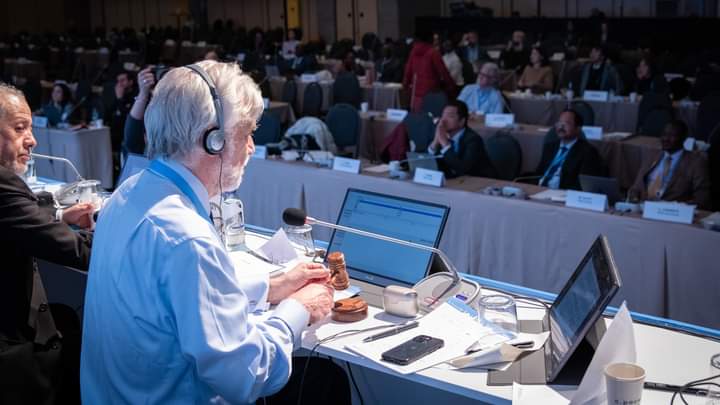
Audio By Carbonatix
The Intergovernmental Panel on Climate Change (IPCC) has outlined its comprehensive plan for the seventh assessment cycle during the 60th Plenary session in Istanbul, Türkiye.
Over 300 delegates from 120 governments reached a consensus on the scientific structure of work, paving the way for essential reports on climate change science.
During the four-day meeting, governments committed to producing three crucial Working Group contributions to the Seventh Assessment Report: the Working Group I report on the Physical Science Basis, the Working Group II report on Impacts, Adaptation, and Vulnerability, and the Working Group III report on Mitigation of Climate Change. The Synthesis Report, summarizing the findings, is expected to be released by late 2029 after the completion of the Working Group reports.
Notably, the IPCC had previously decided to generate a Special Report on Climate Change and Cities and a Methodology Report on Short-lived Climate Forcers. Additional tasks for scientists include delivering a Methodology Report on Carbon Dioxide Removal Technologies, Carbon Capture Utilization, and Storage.
In a significant move, a revision of the 1994 IPCC Technical Guidelines on impacts and adaptation, along with the development of adaptation indicators, metrics, and guidelines, will accompany the Working Group II report as a separate product.
IPCC Chair Jim Skea highlighted the importance of these decisions, stating, "The Panel has taken a critical step in plotting the course for the entire cycle."
He said their decisions reflect the interest of member governments in getting policy-relevant, timely, and actionable scientific information as soon as possible and providing input to the 2028 second Global Stocktake, adding that, there is a notable emphasis on adaptation to climate change.
This decision signals the commencement of intensive scientific work for the new assessments of climate change science. It sets the tone for the organization's dedication to delivering crucial information for effective policy-making. Delegates also addressed budgetary matters and expanded the participation of observer organizations in the IPCC's activities, underlining this strategic roadmap's collaborative and inclusive nature.
Latest Stories
-
Hamamat and Wiyaala land tourism ambassadorial roles
11 minutes -
A singer’s tragic death highlights Nigeria’s snakebite problem
45 minutes -
Mikel Arteta: Arsenal’s 9-point lead at top of Premier League means ‘nothing’
1 hour -
Japan votes in snap election as PM Takaichi takes a gamble
2 hours -
Bloodshed in Kpandai as rival chieftaincy factions clash over gravel pit
3 hours -
Vote-buying allegations: Refer Ayawaso East incident to OSP — Mussa Dankwah tells Mahama
3 hours -
Government plots audacious 180,000-hectare coconut expansion to dominate global markets
4 hours -
AMA doubles sweepers’ wages to GH₵800
5 hours -
Ashie Moore admits defeat in war against vote buying
5 hours -
UniMAC mourns with family as student killed in road crash is laid to rest
6 hours -
Bribery scandal rocks NDC Ayawaso East primary as IMANI President demands total annulment
6 hours -
Pollster Mussa Dankwah reacts as Baba Jamal defies projections in NDC Ayawaso East Primary
6 hours -
Government to roll out Free Primary Healthcare in the first week of April
7 hours -
UPSA launches four new programmes
7 hours -
The price of inaction: Why we must invest now to end FGM in West, Central Africa
8 hours

